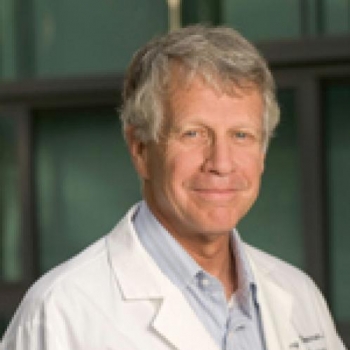Copyright © 2024 Society for Brain Mapping and Therapeutics (SBMT). All Rights Reserved.

Dr. Lawrence Steinman is a professor of Neurology and Neurological Sciences, Pediatrics, and Genetics. He also served as the Chair of the Stanford University Interdepartmental Program in Immunology from 2003-2011.
Dr. Steinman’s research focuses on what provokes relapses and remission in multiple sclerosis (MS), the nature of the molecules that serve as a brake on the brain inflmmation, and the quest for a tolerizing vaccine for autoimmune diseases like type 1 diabetes and neuromyelitis optica. He has developed two antigen specific therapies, using DNA vaccines, for MS and type 1 diabetes. He was senior author on the seminal 1992 Nature article that reported the key role of a particular integrin in brain inflammation. This research led to the development of the drug Tysabri, which is used to treat patients with MS and Crohn’s disease.
Dr. Steinman received his BA from Dartmouth College and his MD from Harvard University. He was a post-doctoral fellow in chemical immunology fellow at the Weizmann Institute of Science in Israel. Dr. Steinman returned to Stanford University Hospital as a resident in pediatric and adult neurology and then joined the faculty at Stanford in 1980.
Dr. Steinman has received numerous honors and awards, including the John M. Dystel Prize from the American Academy of Neurology and the National MS Society for his research on MS, and the Charcot Prize for Lifetime Achievement in MS research. He has twice been awarded the Senator Jacob Javits Neuroscience Investigator Award by the National Institute of Neurological Diseases and Stroke. Dr. Steinman is a member of the National Academy of Sciences and the National Academy of Medicine, formerly called the Institute of Medicine.
Dr. Steinman holds a number of patents in the areas of immunology, and for therapies of Huntington Disease, type 1 diabetes and MS. He cofounded Neurocrine Biosciences, Bayhill Therapeutics now named Tolerion, Nuon Therapeutics, Transparency Life Sciences and Atreca.
The Society for Brain Mapping and Therapeutics (SBMT) was founded in 2004 to break boundaries in healthcare. The society promotes policies that support rapid, safe, and cost-effective translation of new technology into medicine.